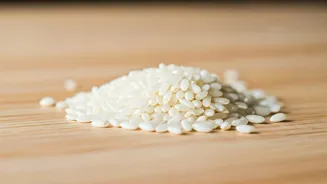Myth 1: Diet Matters
A prevalent belief is that diet directly causes acne, with specific foods often blamed. However, dermatologists debunk this, stating that while some studies
show a connection between certain foods and acne, it is not a universal trigger. The dermatologist emphasizes that what you eat may not be the primary cause of your breakouts. Acne is usually more complex, involving various factors like genetics, hormones, and skin type. Avoiding entire food groups can lead to nutrient deficiencies. The focus should be on a balanced diet and understanding individual skin responses rather than drastic dietary changes as a first step. It is best to consult with a dermatologist to evaluate individual dietary patterns and skin conditions.
Myth 2: Washing Excessively
The idea that over-washing the face eliminates acne is another common myth, but it is often inaccurate. Aggressively washing the face can strip the skin of its natural oils, leading to irritation and possibly worsening breakouts. Over-washing can disrupt the skin's natural barrier function, which is critical for protecting against bacteria and inflammation. A dermatologist advises gentle cleansing twice daily. The right approach involves using a mild cleanser suitable for your skin type and avoiding harsh scrubbing or abrasive products. Proper cleansing focuses on maintaining skin health and not necessarily eliminating all potential causes of acne.
Myth 3: Sun Exposure Benefits
A common misconception is that sun exposure helps clear up acne. While sunlight may temporarily reduce inflammation and redness, it does not treat the underlying causes of acne and can be very damaging. Dermatologists point out that exposure to ultraviolet (UV) rays can lead to long-term skin damage, including premature aging and an increased risk of skin cancer. Furthermore, the sun can cause the skin to produce more oil, and may cause post-inflammatory hyperpigmentation. It is important to use sunscreen when outdoors. It’s advisable to consult with a dermatologist to assess your skin condition and to find appropriate sunscreen choices for your skin type.
Myth 4: Popping Pimples
The practice of popping pimples is often associated with acne treatment but is highly discouraged by dermatologists. Attempting to pop pimples can push the contents deeper into the skin, leading to more inflammation, infection, and scarring. The risk of spreading bacteria also increases, leading to more breakouts. A dermatologist will suggest using spot treatments containing ingredients such as benzoyl peroxide or salicylic acid. These treatments are designed to reduce inflammation and kill acne-causing bacteria. The best approach is to keep your hands off and to be patient while these treatments work, which also involves patience.
Myth 5: Acne is Only Teenage Trouble
A widespread myth is that acne primarily affects teenagers. Dermatologists note that acne can persist into adulthood and can be influenced by factors such as hormones, stress, and specific skincare products. Adult acne presents differently from teenage acne, often appearing as inflammatory lesions on the lower face. Hormonal fluctuations, particularly those related to menstruation or menopause, can trigger breakouts. Skincare product choices can also contribute to acne in adults, especially if products are comedogenic or contain ingredients that clog pores. Recognizing that acne is not limited to adolescents is essential, and it is important to seek professional advice tailored to the individual's age, skin type, and the underlying causes.




















